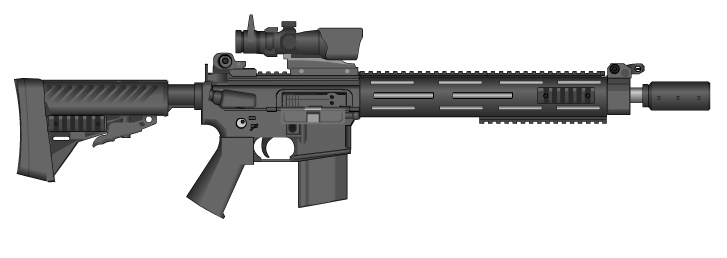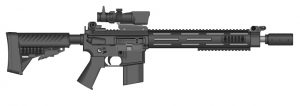“Violence in America is not about the defense of liberty or radical change. It is an expression of domination, racism and hate. American vigilantes are the shock troops of capitalism. They butcher the weak on behalf of the strong.”
By Chris Hedges
TruthDig (2/25/18)
The proliferation of guns in American society is not only profitable for gun manufacturers, it fools the disempowered into fetishizing weapons as a guarantor of political agency. Guns buttress the myth of a rugged individualism that atomizes Americans, disdains organization and obliterates community, compounding powerlessness. Gun ownership in the United States, largely criminalized for poor people of color, is a potent tool of oppression. It does not protect us from tyranny. It is an instrument of tyranny.
“Second Amendment cultists truly believe that guns are political power,” writes Mark Ames, the author of “Going Postal: Rage, Murder, and Rebellion: From Reagan’s Workplaces to Clinton’s Columbine and Beyond.” “[They believe that] guns in fact are the only source of political power. That’s why, despite loving guns, and despite being so right-wing, they betray such a paranoid fear and hatred of armed agents of the government (minus Border Guards, they all tend to love our Border Guards). If you think guns, rather than concentrated wealth, equals political power, then you’d resent government power far more than you’d resent billionaires’ power or corporations’ hyper-concentrated wealth/power, because government will always have more and bigger guns. In fact you’d see pro-gun, anti-government billionaires like the Kochs as your natural political allies in your gun-centric notion of political struggle against the concentrated gun power of government.”
As jobs and manufacturing are shipped overseas, communities crumble, despair grips much of the country and chronic poverty plagues American families, the gun seems to be the last tangible relic of a free and mythic America. It offers the illusion of power, protection and freedom.
American violence has always been primarily vigilante violence. It is a product of the colonial militias; the U.S. Army, which carried out campaigns of genocide against Native Americans; slave patrols; hired mercenaries and gunslingers; the Pinkerton and Baldwin-Felts detective agencies; gangs of strikebreakers; the Iron and Coal Police; company militias; the American Legion veterans of World War I who attacked union agitators; the White Citizens’ Council; the White League, the Knights of the White Camellia; and the Ku Klux Klan, which controlled some states. These vigilante groups carried out atrocities, mostly against people of color and radicals, within our borders that later characterized our savage subjugation of the Philippines, interventions in Latin America, the wars in Korea and Vietnam and our current debacles in the Middle East. Gen. Jacob H. Smith summed up American attitudes about wholesale violence in the Philippines when he ordered his troops to turn the island of Samar, defended by Filipino insurgents, into “a howling wilderness.”
Mass culture and most historians do not acknowledge the patterns of violence that have played out over and over since the founding of the nation. This historical amnesia blinds us to the endemic violence that defines our culture and is encoded in our national myth. As historian Richard Slotkinwrites in “Regeneration Through Violence: The Mythology of the American Frontier 1600-1860,” the first of his three magisterial works on violence in American society, our Jacksonian form of democracy was defined by “the western man-on-the-make, the speculator, and the wildcat banker; [in a time] when racist irrationalism and a falsely conceived economics prolonged and intensified slavery in the teeth of American democratic idealism; and when men like Davy Crockett became national heroes by defining national aspirations in terms of so many bears destroyed, so much land preempted, so many trees hacked down, so many Indians and Mexicans dead in the dust.”
“The first colonists saw in America an opportunity to regenerate their fortunes, their spirits, and the power of their church and nation,” he writes, “but the means to that regeneration ultimately became the means of violence, and the myth of regeneration through violence became the structuring metaphor of the American experience.”
“A people unaware of its myths is likely to continue living by them, though the world around that people may change and demand changes in their psychology, their ethics and their institutions,” Slotkin writes.
The metaphors we use to describe ourselves to ourselves are rooted in this national myth. We explain our history and our experience and seek our identity in this myth. This myth connects us to the forces that shape and give meaning to our lives. It bridges, as Slotkin writes, “the gap between the world of the mind and the world of affairs, between dream and reality, between impulse or desire and action. It draws on the content of individual and collective memory, structures it, and develops it from imperatives for belief and action.”…
*****
“Total gun deaths in the United States average around 37,000 a year, with two-thirds of those deaths being suicides, leaving approximately 12,000 homicides, a thousand of those at the hands of the police. Mass shootings—ones that leave four or more people wounded or dead—now occur in the United States, on average, at the pace of one or more per day. Disturbing as that fact is, mass shootings currently account for only 2 percent of gun killings annually. The number of gun deaths—37,000—is roughly equal to death-by-vehicle incidents in the United States per year.”
— Historian Roxanne Dunbar-Ortiz, “Loaded: A Disarming History of the Second Amendment”
*****
Freedom Had Nothing To Do With Writing The Second Amendment. It Was All About Preserving Slavery
By Thom Hartman
TruthOut (1/15/13)
The real reason the Second Amendment was ratified, and why it says “State” instead of “Country” (the framers knew the difference — see the 10th Amendment), was to preserve the slave patrol militias in the southern states, which was necessary to get Virginia’s vote. Founders Patrick Henry, George Mason and James Madison were totally clear on that… and we all should be too.
In the beginning, there were the militias. In the South, they were also called the “slave patrols,” and they were regulated by the states.
In Georgia, for example, a generation before the American Revolution, laws were passed in 1755 and 1757 that required all plantation owners or their male white employees to be members of the Georgia Militia, and for those armed militia members to make monthly inspections of the quarters of all slaves in the state. The law defined which counties had which armed militias and even required armed militia members to keep a keen eye out for slaves who may be planning uprisings. …
*****
How Powerful Is The NRA?

The Real News (2/28/18)
The NRA’s influence in Washington doesn’t come from spending money directly on elections; it comes from the organization’s ability to mobilize its vast and extremely engaged membership, says Benjamin McKean of Ohio State University.
Link to Transcript and 14-Minute Video
*****
Democratic Party Mass Shooting Accomplices
By Daniel Marans
The HuffPost (2/27/18)
The morning after the Oct. 1 mass shooting in Las Vegas, a member of the Democratic Congressional Campaign Committee’s press staff warned House candidates and their staffs not to “politicize” the shooting that day. Politicization, according to the DCCC official, included talking about gun violence prevention policy.
“You and your candidate will be understandably outraged and upset, as will your community. However, DO NOT POLITICIZE IT TODAY,” DCCC regional press secretary Evan Lukaske wrote to candidates in the Northeast. “There will be time for politics and policy discussion, but any message today should be on offering thoughts/prayers for victims and their families, and thanking 1st responders who saved lives.”
The campaign organization said Democrats should just focus on offering ‘thoughts and prayers’ and ignore looking for solutions.
The email, seen in its entirety below, reflects the careful balance that Democrats have tried to strike as they strive to advance modest gun safety regulations and shield candidates in swing districts from the political price that could accompany comments about guns.
But the cautious approach in Lukaske’s email is increasingly out of touch with what many party members, as well as gun violence prevention activists, would like to see from politicians ― especially in the wake of the recent deadly shooting at Marjory Stoneman Douglas High School in Parkland, Florida. Many of the surviving Parkland students waited almost no time before beginning to agitate for different gun policies, sparking a movement that has captivated the country.
Gun violence prevention activists said they were disappointed the DCCC was advising candidates not to aggressively talk about policy solutions as often as possible. …


